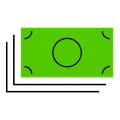Discover it® Secured Credit Card review: A strong card for building credit
Editors’ Take: The Discover it® Secured Credit Card requires a security deposit, but the cash-back rewards and ability to upgrade to an unsecured card help it stand out among other secured cards.
 Image: hands-thumbs-up
Image: hands-thumbs-upGreat for graduating to unsecured credit
 Image: cash
Image: cashAnnual fee: $0
The average credit score for members who have matched with this card or similar cards is 609
The average credit limit for members who have matched with this card or similar cards is $2,441
Explore more about this card:
Here’s the average credit limit of members who matched their Discover it® Secured Credit Card or similar cards.
% of members by credit limit range
The average credit limit for members who have matched with this card or similar cards is $2,441, with $300 being the most common.

Here’s the average credit score of members who matched their Discover it® Secured Credit Card or similar cards.
% of members by credit score range
The average credit score for members who have matched with this card or similar cards is 609, with 557 being the most common. Note this is just one of the deciding factors when it comes to getting approved.

This content is curated by Intuit Credit Karma’s Editorial team using data from members who were approved for this card or similar cards, or who self-matched this card or similar cards. Intuit Credit Karma receives compensation from third-party advertisers, but that doesn’t affect our editors’ opinions. Our third-party advertisers don’t review, approve or endorse this content. Information about financial products not offered on Credit Karma is collected independently. Our content is accurate to the best of our knowledge when posted.
Member stats
Updated daily
 Image: low-utilization
Image: low-utilization47.7%
Average credit utilization (or what percent of the card’s credit limit is being used) of members who matched with this card or similar cards.
 Image: meetup
Image: meetup41 years
Average age of members who matched this card or similar cards.
 Image: cash-give-1
Image: cash-give-1$69,220
Average annual income of members who matched this card or similar cards. Note: Income may be estimated for some members by Credit Karma and may differ from members’ actual incomes.
Pros and cons
 Image: yes
Image: yesMore features than many cards meant for building credit
 Image: yes
Image: yesPotential path to graduate to an unsecured account
 Image: yes
Image: yesNo penalty APR and first late payment fee is waived
 Image: Con
Image: ConPaying the minimum security deposit might not be possible for everyone
 Image: Con
Image: ConA low credit line might slow your ability to build credit
 Image: Con
Image: ConHigh regular purchase APR could cost you in interest
Discover it® Secured Credit Card review
Updated January 7, 2026
This date may not reflect recent changes in individual terms.
Written by: Eric Freeman
What you need to know about the Discover it® Secured Credit Card
Editors’ Take: The Discover it® Secured Credit Card requires a security deposit, but the cash-back rewards and ability to upgrade to an unsecured card help it stand out among other secured cards.
Paying the security deposit on a secured card might not appeal to everyone at first, but the Discover it® Secured Credit Card could be one of your best options for building or rebuilding your credit. It reports to the three major consumer credit bureaus and offers plenty of useful features, all with no annual fee.
Refundable security deposit sets your credit limit
Like all secured credit cards, the Discover it® Secured Credit Card requires a refundable security deposit to open your account. The amount of your security deposit sets your credit limit, and the minimum deposit is $200. But Discover also caps the maximum credit limit at $2,500, so you may be able to go higher than $200, depending on your income and ability to pay.
Your card’s credit limit determines your spending power, but it’s also an important factor in the calculation of your credit scores. Most models consider your credit utilization rate, or the amount of your available credit you use, as one of the biggest factors in your scores. Most experts recommend aiming to use less than 30% of your available credit, so every bit you can afford to put down as part of your deposit can make a difference to your scores.
There’s a path to unsecured credit
While the security deposit might cost you upfront, Discover thankfully offers the opportunity to get that money back after less than a year of card membership. The issuer promises automatic monthly reviews for a potential transition to an unsecured account after seven months. If you qualify, Discover will return your security deposit in full and no longer require a deposit on your account.
The ability to graduate to an unsecured card is not a standard offering from secured credit cards, and it’s one of the biggest reasons why we like the Discover it® Secured Credit Card for those looking to build or rebuild credit. A security deposit can be a hassle, and getting a clear timeline on when you could have that money returned to you helps set this card apart from the competition.
Rewards offer value beyond building credit
We don’t consider a rewards program to be an essential component of a card meant for building credit, but that doesn’t mean the extra value isn’t meaningful. The Discover it® Secured Credit Card offers 2% cash back on up to $1,000 in combined purchases at gas stations and restaurants each quarter (then 1%). All other purchases earn 1% cash back, too.
Plus, Discover’s Cashback Match feature will match all the cash back you earn at the end of your first year of account membership. So if you earned $20 in cash back over the course of the year, you’d get another $20 in your account even if you’d already redeemed all your available rewards.
The potential value of your total cash back might not be super high if your card’s credit limit is the $200 minimum, but we know that every little bit helps. And most secured credit cards don’t come with any rewards at all, so this extra value is another reason to recommend the Discover it® Secured Credit Card.
Other features of the Discover it® Secured Credit Card
These features of the card are also worth considering as you decide whether to apply.
- Free FICO® credit score to help track your credit — Discover provides a resource to those focusing on their credit with a free FICO score. While this score is just one of many that lenders may consider, it’s another tool to help guide you.
- Interest rates could cost you — If you need to carry a balance from month to month, the card’s high variable purchase APR of 26.49% might cost you. At the same time, this APR is in line with what you can expect to see from many secured credit cards, so it shouldn’t be a dealbreaker.
- No penalty APR — If you miss a payment or pay late, Discover won’t penalize you with a higher ongoing purchase APR.
- Late-payment waiver — Discover also won’t penalize you with a fee for your first late payment. But keep in mind that other missed payments will trigger a fee of up to $41, plus the possibility that your missed payment will be reported to the credit bureaus.
Who this card is good for
The Discover it® Secured Credit Card could be a great option if you’re looking to build credit and have the ability to cover the $200 minimum security deposit. While not everyone wants to pay a deposit and the card’s initial credit limit could be low, few options meant for building credit offer the range of features and terms found on this card. Plus, the path for graduating to an unsecured card means you might be able to get your security deposit back in as few as seven months.
This card is probably better for those who are looking to rebuild credit rather than for those who are trying to build a credit history from scratch. If you’re new to credit entirely, it might be worth considering some unsecured cards or student cards first.
Not sure this card is right for you? Consider these alternatives.
- Capital One Platinum Secured Credit Card: This secured card might be better for those hoping to pay a lower security deposit.
- Petal® 2 Visa® Credit Card: If you’re new to credit, this card is worth a close look.
- Discover it® Student Chrome: This card might be a more sensible option for students looking for their first credit card.
Member reviews
Most helpful positive review
March 15, 2024
In as little as 6 months
— Credit Karma Member ,Verified cardholder
I started with my secured deposit of 300. after my 6th billing cycle closed, three days later they upped my credit limit to 1800 and sending my 300 back. I called about it before and they said they don’t start reviewing until the 7th month. So it was definitely a pleasant surprise. I kept my balance below 30% and always paid it in full before the due date. I also use them for checking account, the cash back for that is amazing.
Most helpful negative review
February 21, 2024
Beware!!
— Credit Karma Member ,Verified cardholder
I wanted to work on my credit score and thought getting a prepaid card would help, it's been a nightmare. I sent $500 as the beginning of January, it's not the end of February and I've yet to receive a card. After MANY phone calls, each time getting a new and different excuse as to why I've not received it, to outright lies told by their customer service, I demanded today that my money be returned to me. Here's the kicker.... after speaking to 3 people tonight by phone, each handing the issue off to someone else, I was told that they would send my money back, it could take 60 days, they will close the account which will hurt my credit score! Like I'm being threatened. How can an account be closed when I've never received a card from these jokers! I don't know about you, but I don't have$500+ to give away... only to be threatened by the company who's enjoying my money!
*Approval Odds are not a guarantee of approval. Credit Karma determines Approval Odds by comparing your credit profile to other Credit Karma members who were approved for the card shown, or whether you meet certain criteria determined by the lender. Of course, there’s no such thing as a sure thing, but knowing your Approval Odds may help you narrow down your choices. For example, you may not be approved because you don’t meet the lender’s “ability to pay standard” after they verify your income and employment; or, you already have the maximum number of accounts with that specific lender.



